- Home
- Stephanie Laurens
A Fine Passion Page 2
A Fine Passion Read online
Page 2
To Jack’s relief, her voice showed no hint of agitation, much less hysteria. Her words were brisk, her tone commanding, as if she was used to being obeyed.
He looked at the horse. “I can’t let the horse go—he’s too nervous—but he’s calm enough for you to hold. Come and take the reins, and I’ll get the driver out.”
The lady straightened; hands on hips, she rounded the wrecked phaeton and stopped five feet away, regarding him through dark, narrowed eyes, her ruby lips a thin line, her sculpted jaw set.
He’d been right; she was tall. Only a few inches shorter than he.
“Don’t be asinine.” Her glance was measuring—measuring and dismissive. “You can’t lift the carriage and get him out at the same time.”
Jack narrowed his eyes back; pain stabbed through his skull. His tone verging on lordly arrogance, he retorted, “Just take the reins and leave getting him out to me.”
He offered the reins he’d gathered to her.
She made no move to take them. Instead, she caught his eye. “Unharness the horse.” Her words were a clipped order. “If he panics again, I won’t be able to hold him, and if he drags the carriage, he’ll harm the driver more.” She turned back to the side of the phaeton. “Or worse, you’ll drop the carriage after you’ve lifted it.”
Jack bit his tongue and manfully swallowed his less-than-civilized response. It was, he told himself, only because his head was throbbing that he hadn’t thought of unharnessing the horse himself.
Talking nonsense to the horse, he played out enough rein to reach the harness buckles along one side. The lady returned and, without so much as a glance his way, went to work on the buckles opposite. Tugging the leather straps free, he studied her face, alabaster ivory, exquisitely molded features set in aloof dispassion. Arched brows and lush dark lashes framed large dark eyes; he hadn’t yet got close enough to be sure of their true color.
Then they had the harness loose. The horse edged forward; the poles threatened to fall to the ground.
Jack grabbed one. “Here—take the reins and walk him forward. I’ll hold the poles steady.” If they fell, the driver’s trapped limbs might be crushed even more.
Grasping the reins, the lady went to the horse’s head, caught its attention, then, talking soothingly, slowly urged the bay forward step by step. Jack took the weight of the poles as the harness loops slid off.
With the horse free, the lady looked around. Jack glanced over his shoulder. Challenger had returned and stood cropping grass on the other side of the road. “Tie him to the hedge near my horse.”
She did, although she cast him another of her irritated looks on the way.
By the time she returned, he’d found the height at which the poles were balanced; he held them resting on his palms. “Stand here, and support these until I tip the carriage. Once I do, you can let go and come and help drag the driver free.”
Her gaze raked his face, then she looked at the poles, quite clearly evaluating his plan. Then she nodded, stepped up beside him, and grasped the poles.
Jack bit his tongue. Again. She was the most aggravating female, and she didn’t even need to speak.
He rounded the side of the carriage and saw the driver. A young gentleman, he’d obviously done everything he could to save horse and carriage, and had stayed on the box too long. The carriage had rolled onto its side, then farther, pinning and crushing one leg. Luckily, the slope of the ditch wasn’t that steep; the carriage hadn’t continued rolling onto its hood, but had rocked back to settle on its side.
Hunkering down, Jack checked the man’s pulse. Strong enough, steady enough. At least one leg was broken; a quick survey revealed that one shoulder was dislocated, a collarbone broken, and an arm as well. On top of what must have been a hellish knock on the head. Jack winced, then rose and studied the wreck. The fine wood of the ornamented sides was splintered, but the carriage was well made; the skeleton remained intact.
It took a minute to identify the best points on the frame to grasp to lift. Positioning himself with his back to the carriage, half-crouched, the edge of the lower side resting on his hands, Jack glanced at the lady. She was watching him in surprising silence and with grudging approval.
“When I lift, let the poles rise as they will. When we’re sure the carriage is going to hold together and not break apart, come around and help haul him out.”
She nodded.
He straightened, lifting the side up to waist height, then he braced, bent, heaved the carriage higher, and ducked his shoulders beneath the bones of the side. Bits of panel fell away; wood creaked, groaned, but the frame held.
Without waiting for any word, the lady rushed up. Bending, she grasped the man’s shoulders.
“No! One’s dislocated. Hook your hands under his armpits and drag him out.”
She stiffened at his tone but did as he said.
Although he couldn’t see her face, Jack could imagine her expression. Shifting, he tried to ease the weight of the carriage onto one shoulder so he could reach down and help—
“Don’t move, you idiot! I can manage.”
Jack stiffened as if she’d slapped him.
She shot him a mutinous, distinctly black glare, then shuffled back, tugging the man out from the carriage’s shadow.
His hearing was acute; he heard her muttering beneath her breath, “I’m hardly a weak, fainting female, you dolt.”
Entirely unexpectedly, his lips kicked up at the ends.
“You can let it down now.”
She’d pulled the man onto the grass. Jack slowly let the carriage down, then followed.
Frowning at the man’s face, she dropped to her knees beside him.
“Do you know him?” Jack knelt on the man’s other side.
She shook her head. “He’s not from around here.”
Which meant she was, and that surprised him. She certainly hadn’t been living in the vicinity seven years ago. Funeral or not, he would have noticed her, and remembered.
He set about methodically checking the man for injury, straightening limbs, noting the breaks.
Still frowning, she watched his hands. “Do you know what you’re doing?”
“Yes.”
Her lips tightened, but she accepted the assurance.
His assessment of the man’s injuries had been largely correct. With one quick, expert jerk, he reset the shoulder, then, using sections of beading broken off the carriage, he used his and the man’s cravats to splint the broken arm and bind it and the shoulder. That done, he turned to the leg, broken in two places. He had plenty of wood for splints.
He glanced at the lady. “I don’t suppose you’d consider sacrificing the flounce from your petticoat?”
She looked up, met his gaze; faint color bloomed in her pale cheeks. “Of course I will.”
Her tone belied her blush; no missish sentiment permitted or acknowledged. She swung around so her back was to him, and sat. An instant later, he heard cloth rip.
Rising, he went to the carriage to hunt for longer splints. By the time he returned, a long strip of fine lawn lay waiting by the unconscious man.
He bent to the task. She helped, working under his direction, in silence.
In Jack’s experience, females were rarely silent.
Her hands, gripping where he directed, holding the splints in place, were as fine as her features, long-fingered and elegant, palms slender, skin fine-grained and white.
Distinctly aristocratic hands.
He glanced briefly at her face, closer now they were both leaning over the man. Distinctly aristocratic face, too. As for the rest…
Looking down, he forced his mind back to the man and his broken limb. Not easy; the distractions were manifold.
She had the sort of figure commonly described as an armful.
Words like “voluptuous” sprang to his mind. Phrases like well endowed.
Then he remembered her earlier scorching gaze and found the perfect adjective. Boadicean.
Very English. Very female. Very fierce.
He finished tying off their improvised bandage. The injured man was as comfortable as they could make him.
Boadicea sat back with a small sigh.
Jack rocked back on his heels and rose. He dusted off his hands, then held one out to her.
She was staring past him, down the road. Without looking at him—apparently without thought—she laid her hand in his and allowed him to pull her to her feet.
Retrieving her hand, she looked down, surveying their patient. “The manor’s the nearest house. How are we going to get him there?”
She’d surprised him again. Not only had she volunteered his house, her question was rhetorical.
Although tempted to see how she would solve the problem, he took pity on the unconscious unfortunate. “There’s probably some part of the carriage we can use to lay him on.”
He went to look. One side door was smashed beyond use; the other was intact, but by itself too small. The board beneath the seat was splintered.
“Will this do?”
Jack turned to see Boadicea pointing at the rear of the phaeton. Joining her, he examined the long, slightly curved backing board jarred loose at one end but otherwise intact. “Stand back.”
Of course, she didn’t move; arms crossed, she watched while he got a firm grip, yanked the board loose, then pried it free.
He resisted the urge to see if her toe was tapping.
He carried the board to the unconscious man; she followed at his heels. Together, with no need for instructions, they lifted the man onto the board. Boadicea set down the man’s legs, turned, and disappeared behind the phaeton. A second later she reappeared lugging a traveling bag.
She dropped it beside the man and bent to open it. “He’s sure to have more cravats. We can tie him to the board with them.”
Without bothering to nod—she wasn’t looking at him—Jack left her and went to fetch the bay. When he returned, she was securing their patient to the improvised stretcher with a pair of cravats. “That should hold him.”
Jack checked her knots; they were perfectly serviceable. Bending, he looped the long reins around and over their patient, and under the cravats.
She watched his every move; when he tied off the last rein, she nodded in regal approval. “Good.” She dusted off her skirts, placed the man’s bag on the board at his feet, then waved down the road. “The manor’s less than a quarter of a mile.”
About a quarter of a mile, most of it the long drive. Fetching Challenger, Jack hoped Griggs and his butler Howlett had kept the drive in good repair.
Leading Challenger, he fell in beside Boadicea, who was coaxing the bay forward in an even, steady walk. The reins pulled taut; their stretcher eased into the lane, riding the dry, reasonably even surface smoothly enough.
Satisfied they’d done all they could for the injured man, Jack turned his attention to his companion. No hat, no gloves. She had to live close. “Do you live hereabouts?”
She waved to the left. “At the rectory.”
Jack frowned. “James Altwood used to be rector there.”
“He still is.”
Jack remembered her hands. No ring, no hint she’d ever worn one. He waited for her to elaborate. She didn’t.
After a few moments, he asked, “How did you come to be in the road?”
She glanced at him; her eyes were very dark brown, even darker than her hair. “I was in the field mushrooming.” Again she waved to the left. “There’s an old oak on a knoll—there are always mushrooms there.”
Jack knew of it.
“I heard the accident, dropped my basket, and came racing down.” She reached a hand to her hair, grimaced. “My hat fell off somewhere.”
She didn’t seem overly perturbed.
A second later, she slanted him a glance. “Where are you headed?”
“The manor.”
He looked ahead and said nothing more. He felt her gaze, felt it sharpen, but, hiding a grim grin, refused to meet it. Two could play at withholding information.
They walked on through the glorious morning in silence. A strange silence—contained, controlled, assured. She, it seemed, was no more susceptible than he to the intimidation many felt when subjected to silence.
He should, of course, introduce himself, but she’d volunteered his house; telling her who he was might embarrass her, although somehow he doubted it would. He wasn’t playing by the social rules because…she was different.
And he wanted to knock her off her regal perch.
The wrought-iron gates of the manor appeared on their right, flanked by oaks that had been ancient when Jack was born. As usual, the gates were propped wide. Together, he and Boadicea guided the bay in a wide arc, towing the stretcher smoothly through the turn and onto the long, rising drive.
Jack looked around as they walked on. Most of the fields within a mile were his, but these acres, the stretch between the drive and the rushing stream, a tributary of the Frome, and the gardens around the house, played host to most of his childhood memories.
They crested a rise and the house came into view. Lifting his head, he scanned the facade; everything was in excellent repair, yet it was the simple solidity of the house and its welcoming ambiance that reached out and closed about his heart.
He was aware Boadicea was watching him; he could feel her gaze, uninhibitedly curious.
“Are you expected?” she asked.
“Not precisely.”
From the corner of his eye, he caught her narrow-eyed glance, then she looked ahead and lengthened her stride, leaving him to lead both horses.
He let her go ahead; striding up to the portico, she tugged the bell. Halting the horses in the forecourt, he waited.
Howlett opened the door. He immediately bowed. “Lady Clarice.”
Lady Clarice?
Then Howlett saw him. The smile that broke across his butler’s face was a welcome all on its own. “My lord! Welcome home!”
Boadicea stepped back, slowly turning to face him.
Howlett rushed out, then realized and turned back to call to the footman, Adam, who’d poked his head around the door. “Go and tell Griggs and Mrs. Connimore! His lordship’s back!”
Jack smiled at Adam, who grinned and bobbed his head before racing back into the house. Howlett bowed, beaming, before him; Jack thumped him on the shoulder and asked if all was well. Howlett assured him all was. Then gravel crunching beneath a lumbering gait heralded the arrival of Crabthorpe, the head stableman, known to all as Crawler. Rounding the house, he saw Jack, and his face split.
“Thought as it must be you—too much carry-on to be anyone else.” Then Crawler saw Howlett examining the makeshift stretcher. “What have we here?”
“His phaeton overturned in the ditch.”
Crawler ambled across and bent over the injured man. “Another young larrikin with more hair than wit, no doubt.” After a cursory examination, he straightened. “I’ll send one of my lads for Dr. Willis.”
“Do.”
Stepping back from the stretcher, Howlett remembered Boadicea. “Lady Clarice!” Howlett rushed back to her. “I do apologize, my lady. But, well, his lordship’s come home at last, as you can see.”
A smile softened Bodicea’s face as she met Howlett’s eyes. “Yes, indeed.” She looked at Jack; her gaze sharped to flint. “I do see.”
His slow, easy smile had charmed women from one end of England to the other and through at least half of France. It had no discernible effect on Boadicea.
“My lord! You’re back!” Mrs. Connimore rushed out, followed more slowly by his steward, Griggs, leaning heavily on his cane.
In the ensuing melee, Jack lost sight of his recent companion; he surrendered to Mrs. Connimore’s wild hug and nonstop exclamations. He was instantly aware of, and seriously alarmed by, Griggs’s frailty. When had he grown so old?
Perturbed, distracted, he deflected their solicitiousness onto the unknown, still unconscious man.
Mrs. Connimore and Howlett rose to the occasion and quickly organized to spirit the poor soul indoors and into a bed.
Crawler took charge of both horses and assured Jack he’d send his lads to clear the wreckage from the road.
Jack directed Adam to the traveling bag. As the crowd cleared, he was almost surprised to see Boadicea still standing by the front portico, still watching—he suspected still waiting to exact retribution. “I’ll be in shortly, Griggs.” Jack smiled and took Griggs’s arm to help him back to the house. “Everything seems in excellent order—I know I have you to thank.”
“Oh, no—well, everyone here quite understood…I daresay your new responsibilities are quite onerous…but we’re so glad you’ve come home.”
“I couldn’t stay away.” Jack smiled as he said it, not his polished smile but one of real feeling.
He stopped before the portico and urged Griggs to go in. “I must speak with Lady Clarice.”
“Oh, yes.” Reminded of her presence, Griggs halted and bowed low. “Please do excuse us, my lady.”
She smiled, warm and reassuring. “Of course, Griggs. Don’t concern yourself.”
Her eyes lifted to meet Jack’s. The look in them stated very clearly that she had no intention of forgiving him so easily.
He waited until Griggs had gone in and the footman had shut the door before strolling the last few feet to her.
She met his gaze directly, her dark eyes accusatory. “You’re Warnefleet.”
Not a question. Jack acknowledged the comment with an inclination of his head, but was at a loss to account for the condemnatory nuances clear in both her inflection and stance. “And you’re Lady Clarice…?”
She held his gaze for a definite moment, then said, “Altwood.”
Jack frowned.
Before he could ask, she added, “James is a cousin. I’ve been living at the rectory for nearly seven years.”
Unmarried. Living buried in the country. Lady Clarice Altwood. Who…?
She seemed to have no difficulty following his train of thought. Her lips thinned. “My father was the Marquess of Melton.”

 Lady Osbaldestone’s Plum Puddings: Lady Osbaldestone’s Christmas Chronicles Volume 3
Lady Osbaldestone’s Plum Puddings: Lady Osbaldestone’s Christmas Chronicles Volume 3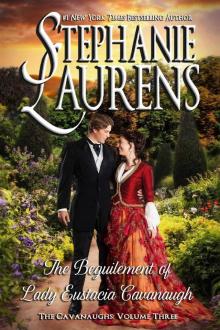 The Beguilement of Lady Eustacia Cavanagh: The Cavanaughs Volume 3
The Beguilement of Lady Eustacia Cavanagh: The Cavanaughs Volume 3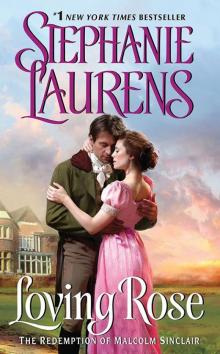 Loving Rose: The Redemption of Malcolm Sinclair (Casebook of Barnaby Adair)
Loving Rose: The Redemption of Malcolm Sinclair (Casebook of Barnaby Adair)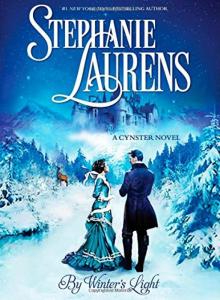 By Winter's Light
By Winter's Light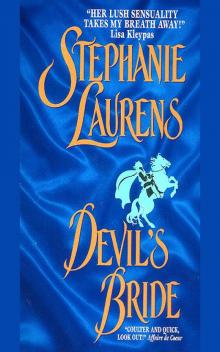 Devil's Bride
Devil's Bride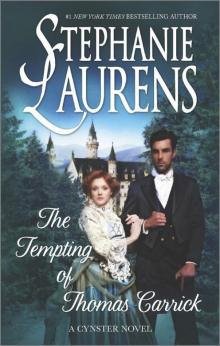 The Tempting of Thomas Carrick
The Tempting of Thomas Carrick![Cynster [22.00] A Match for Marcus Cynster Read online](http://i1.bookreadfree.com/i/03/16/cynster_[22_00]_a_match_for_marcus_cynster_preview.jpg) Cynster [22.00] A Match for Marcus Cynster
Cynster [22.00] A Match for Marcus Cynster All About Love c-6
All About Love c-6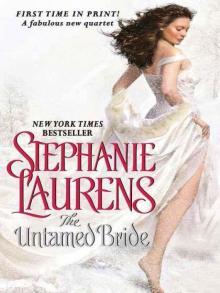 Cobra 01 The Untamed Bride
Cobra 01 The Untamed Bride A Lady of Expectations and Other Stories
A Lady of Expectations and Other Stories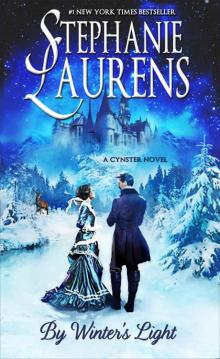 By Winter's Light_A Cynster Novel
By Winter's Light_A Cynster Novel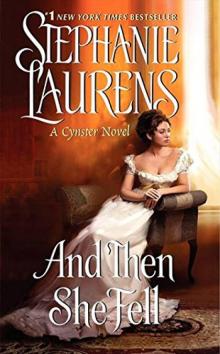 And Then She Fell
And Then She Fell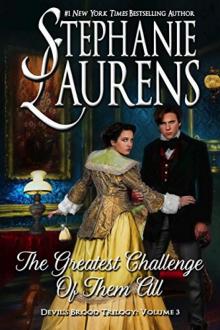 The Greatest Challenge of Them All
The Greatest Challenge of Them All The Edge of Desire
The Edge of Desire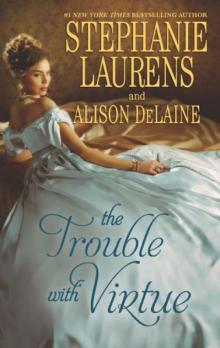 The Trouble With Virtue: A Comfortable WifeA Lady by Day
The Trouble With Virtue: A Comfortable WifeA Lady by Day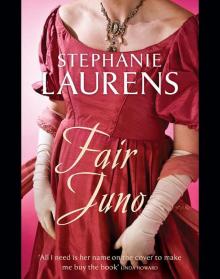 Fair Juno
Fair Juno THE LEGEND OF NIMWAY HALL: 1750 - JACQUELINE
THE LEGEND OF NIMWAY HALL: 1750 - JACQUELINE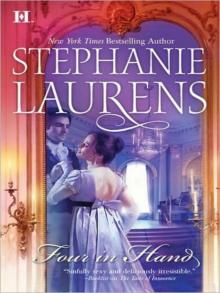 Four In Hand
Four In Hand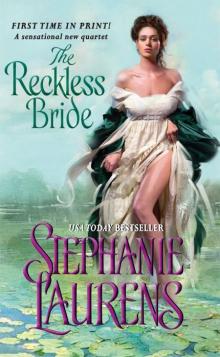 The Reckless Bride
The Reckless Bride Stephanie Laurens Rogues' Reform Bundle
Stephanie Laurens Rogues' Reform Bundle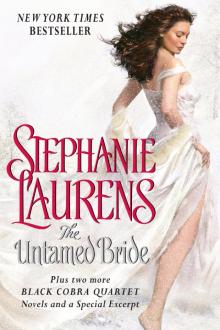 The Untamed Bride Plus Black Cobra 02-03 and Special Excerpt
The Untamed Bride Plus Black Cobra 02-03 and Special Excerpt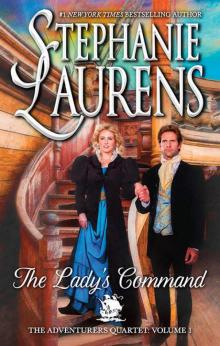 The Lady's Command (Adventurers Quartet #1)
The Lady's Command (Adventurers Quartet #1)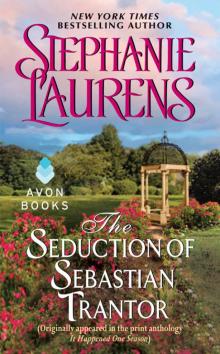 The Seduction of Sebastian Trantor
The Seduction of Sebastian Trantor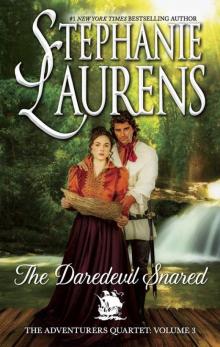 The Daredevil Snared (The Adventurers Quartet Book 3)
The Daredevil Snared (The Adventurers Quartet Book 3)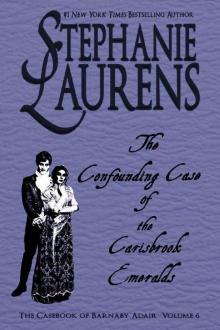 The Confounding Case Of The Carisbrook Emeralds (The Casebook of Barnaby Adair 6)
The Confounding Case Of The Carisbrook Emeralds (The Casebook of Barnaby Adair 6) Lord of the Privateers (The Adventurers Quartet)
Lord of the Privateers (The Adventurers Quartet)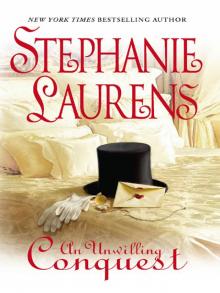 An Unwilling Conquest
An Unwilling Conquest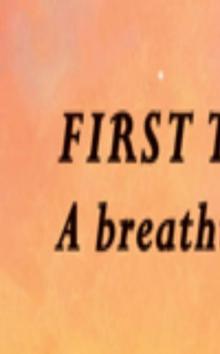 Brazen Bride
Brazen Bride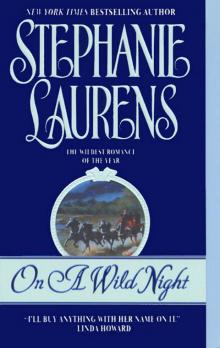 On a Wild Night
On a Wild Night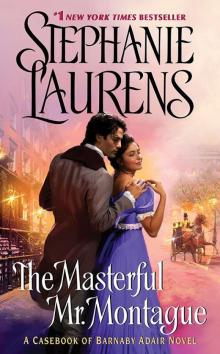 The Masterful Mr. Montague: A Casebook of Barnaby Adair Novel
The Masterful Mr. Montague: A Casebook of Barnaby Adair Novel Lord of the Privateers
Lord of the Privateers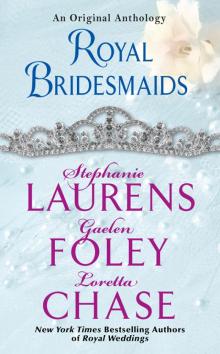 Royal Bridesmaids
Royal Bridesmaids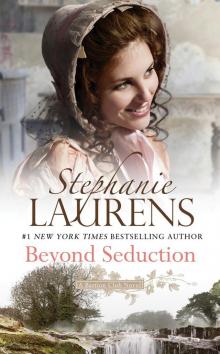 Beyond Seduction
Beyond Seduction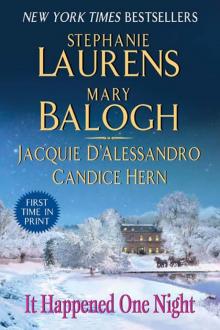 It Happened One Night
It Happened One Night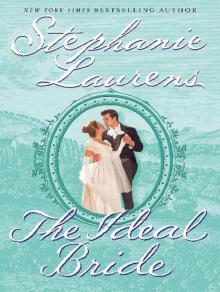 The Ideal Bride
The Ideal Bride The Promise in a Kiss
The Promise in a Kiss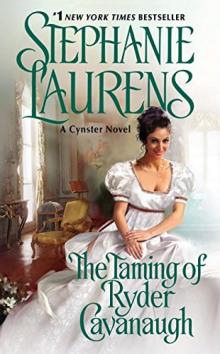 The Taming of Ryder Cavanaugh
The Taming of Ryder Cavanaugh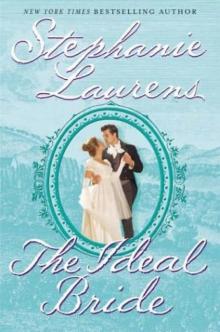 The Ideal Bride c-12
The Ideal Bride c-12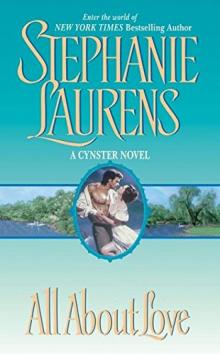 All About Love
All About Love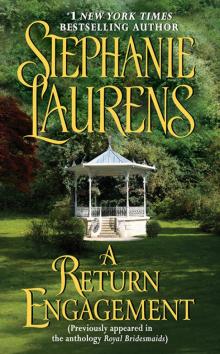 A Return Engagement
A Return Engagement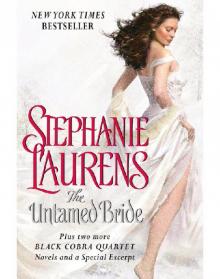 The Untamed Bride Plus Two Full Novels and Bonus Material
The Untamed Bride Plus Two Full Novels and Bonus Material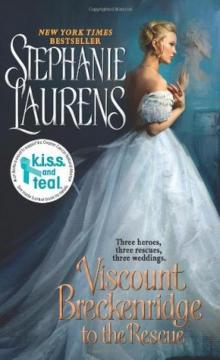 Viscount Breckenridge to the Rescue
Viscount Breckenridge to the Rescue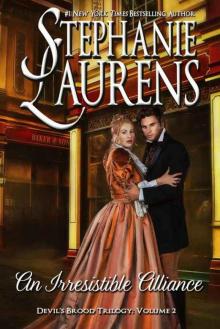 An Irresistible Alliance (Cynsters Next Generation Novels Book 5)
An Irresistible Alliance (Cynsters Next Generation Novels Book 5)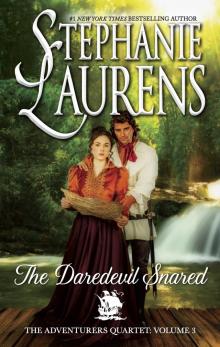 The Daredevil Snared
The Daredevil Snared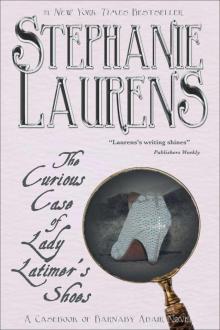 The Curious Case of Lady Latimer's Shoes: A Casebook of Barnaby Adair Novel
The Curious Case of Lady Latimer's Shoes: A Casebook of Barnaby Adair Novel A Lady of Expectations and Other Stories: A Lady of ExpectationsThe Secrets of a CourtesanHow to Woo a Spinster
A Lady of Expectations and Other Stories: A Lady of ExpectationsThe Secrets of a CourtesanHow to Woo a Spinster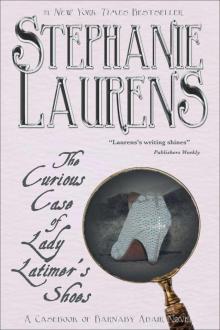 The Curious Case of Lady Latimer's Shoes: A Casebook of Barnaby Adair Novel (The Casebook of Barnaby Adair)
The Curious Case of Lady Latimer's Shoes: A Casebook of Barnaby Adair Novel (The Casebook of Barnaby Adair)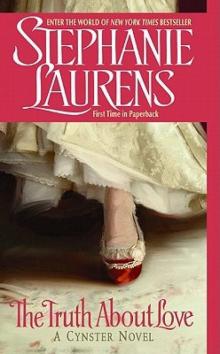 The Truth About Love
The Truth About Love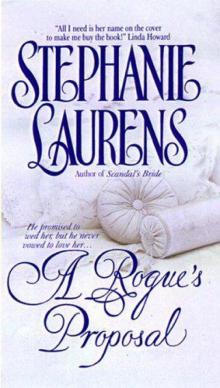 A Rogue's Proposal
A Rogue's Proposal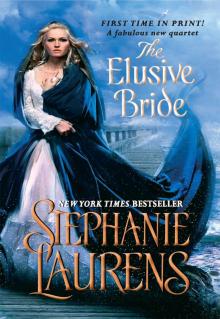 The Elusive Bride
The Elusive Bride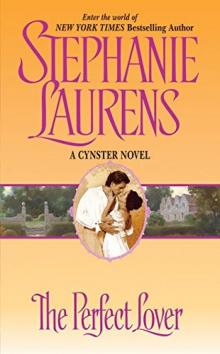 The Perfect Lover
The Perfect Lover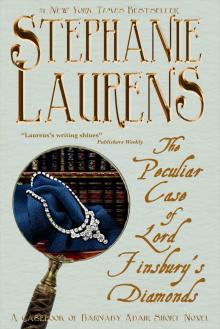 The Peculiar Case of Lord Finsbury's Diamonds: A Casebook of Barnaby Adair Short Novel
The Peculiar Case of Lord Finsbury's Diamonds: A Casebook of Barnaby Adair Short Novel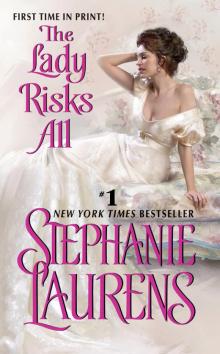 The Lady Risks All
The Lady Risks All The Murder at Mandeville Hall: The Casebook of Barnaby Adair: Volume 7
The Murder at Mandeville Hall: The Casebook of Barnaby Adair: Volume 7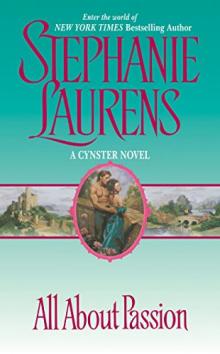 All About Passion
All About Passion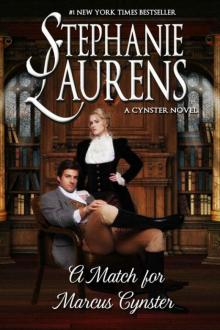 A Match for Marcus Cynster
A Match for Marcus Cynster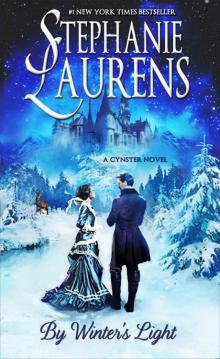 By Winter's Light: A Cynster Novel (Cynster Special Book 2)
By Winter's Light: A Cynster Novel (Cynster Special Book 2)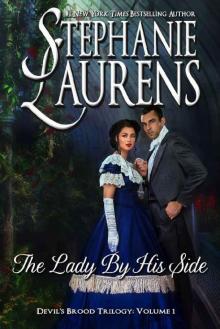 The Lady By His Side
The Lady By His Side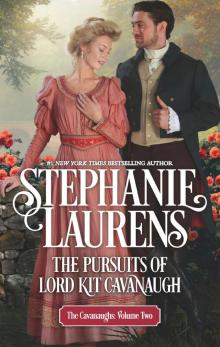 The Pursuits of Lord Kit Cavanaugh
The Pursuits of Lord Kit Cavanaugh Tangled Reins
Tangled Reins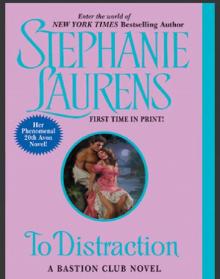 To Distraction
To Distraction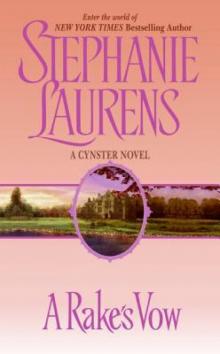 A Rake's Vow
A Rake's Vow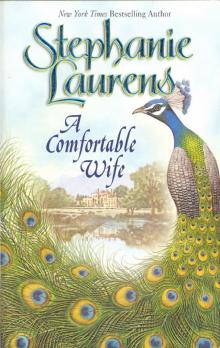 A Comfortable Wife
A Comfortable Wife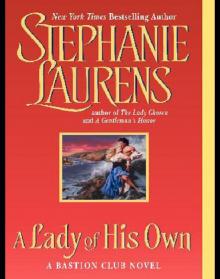 A Lady of His Own bc-3
A Lady of His Own bc-3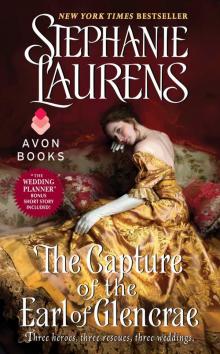 The Capture of the Earl of Glencrae
The Capture of the Earl of Glencrae Scandals Bride c-3
Scandals Bride c-3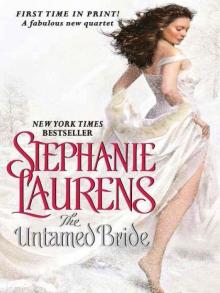 Untamed Bride
Untamed Bride The Brazen Bride
The Brazen Bride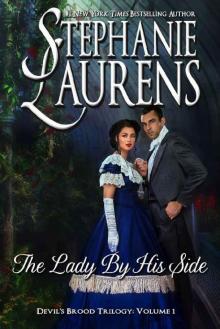 The Lady By His Side (Cynsters Next Generation Novels Book 4)
The Lady By His Side (Cynsters Next Generation Novels Book 4)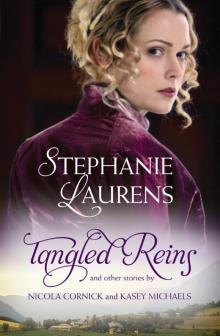 Tangled Reins and Other Stories
Tangled Reins and Other Stories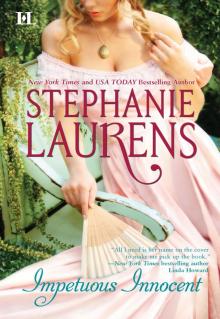 Impetuous Innocent
Impetuous Innocent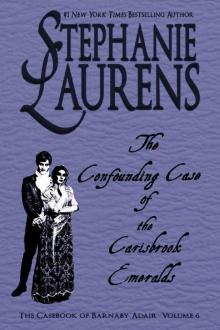 The Confounding Case Of The Carisbrook Emeralds
The Confounding Case Of The Carisbrook Emeralds Stephanie Laurens - B 6 Beyond Seduction
Stephanie Laurens - B 6 Beyond Seduction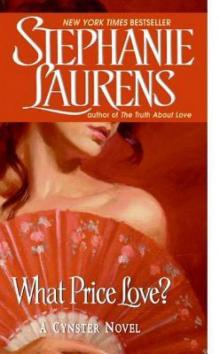 What Price Love?
What Price Love?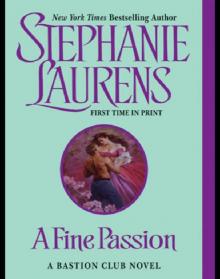 A Fine Passion
A Fine Passion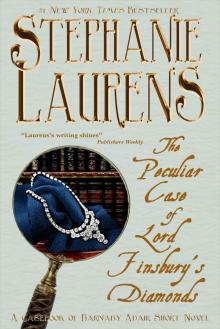 The Peculiar Case of Lord Finsbury's Diamonds: A Casebook of Barnaby Adair Short Novel (The Casebook of Barnaby Adair)
The Peculiar Case of Lord Finsbury's Diamonds: A Casebook of Barnaby Adair Short Novel (The Casebook of Barnaby Adair) Where the Heart Leads
Where the Heart Leads The Designs of Lord Randolph Cavanaugh
The Designs of Lord Randolph Cavanaugh A Secret Love c-5
A Secret Love c-5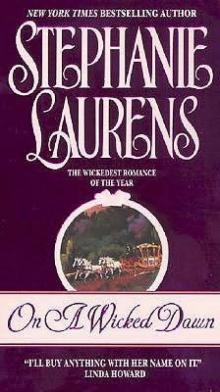 On a Wicked Dawn c-10
On a Wicked Dawn c-10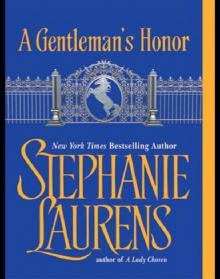 A Gentleman's Honor
A Gentleman's Honor THE LEGEND OF NIMWAY HALL_1750_JACQUELINE
THE LEGEND OF NIMWAY HALL_1750_JACQUELINE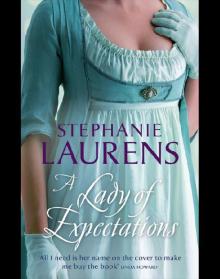 A Lady of Expectations
A Lady of Expectations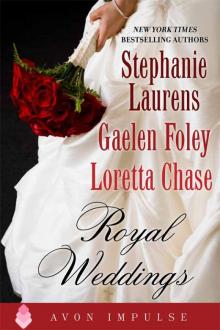 Royal Weddings: An Original Anthology
Royal Weddings: An Original Anthology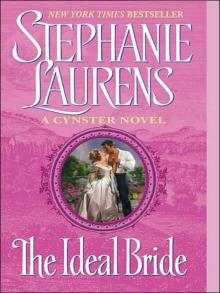 The Ideal Bride (Cynster Novels)
The Ideal Bride (Cynster Novels) Mastered by Love
Mastered by Love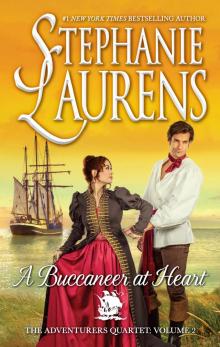 A Buccaneer at Heart
A Buccaneer at Heart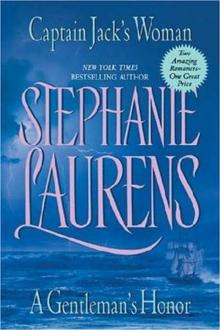 Captain Jack’s Woman / A Gentleman's Honor
Captain Jack’s Woman / A Gentleman's Honor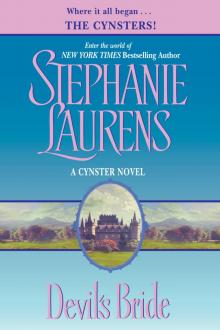 Devil's Bride with Bonus Material
Devil's Bride with Bonus Material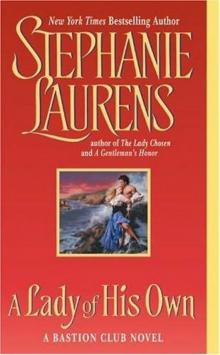 A Lady of His Own
A Lady of His Own A Secret Love
A Secret Love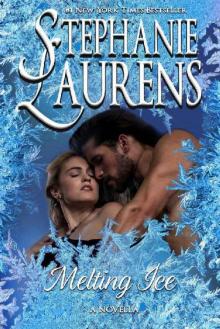 Melting Ice
Melting Ice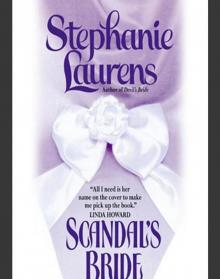 Scandal's Bride
Scandal's Bride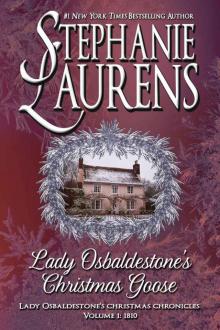 Lady Osbaldestone’s Christmas Goose
Lady Osbaldestone’s Christmas Goose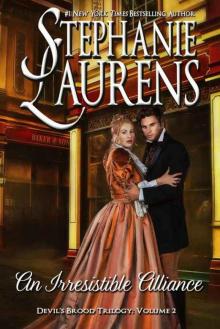 An Irresistible Alliance
An Irresistible Alliance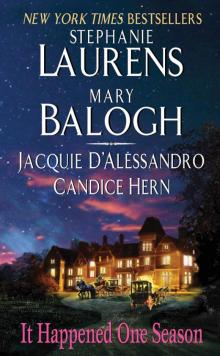 It Happened One Season
It Happened One Season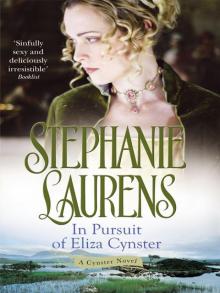 In Pursuit Of Eliza Cynster
In Pursuit Of Eliza Cynster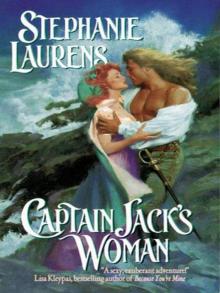 Captain Jack's Woman
Captain Jack's Woman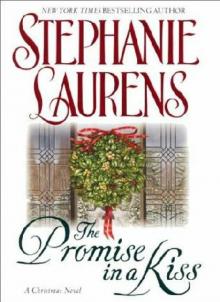 The promise in a kiss c-8
The promise in a kiss c-8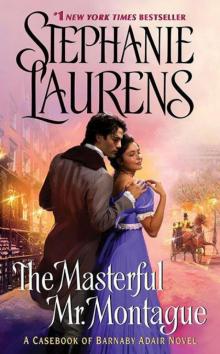 The Masterful Mr. Montague
The Masterful Mr. Montague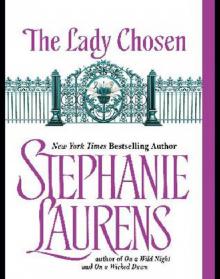 The Lady Chosen
The Lady Chosen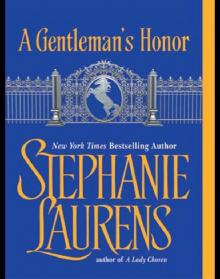 A Gentleman's Honor bc-2
A Gentleman's Honor bc-2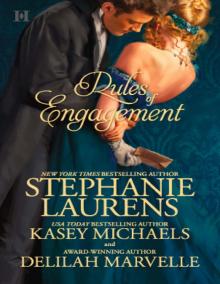 Rules of Engagement: The Reasons for MarriageThe Wedding PartyUnlaced (Lester Family)
Rules of Engagement: The Reasons for MarriageThe Wedding PartyUnlaced (Lester Family) Secrets of a Perfect Night
Secrets of a Perfect Night The Taste of Innocence
The Taste of Innocence On A Wicked Dawn
On A Wicked Dawn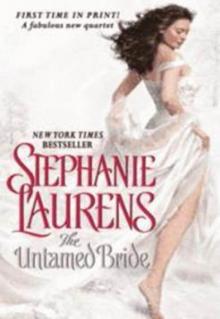 The Untamed Bride
The Untamed Bride A Rogues Proposal c-4
A Rogues Proposal c-4 Rakes Vow c-2
Rakes Vow c-2 Devils Bride c-1
Devils Bride c-1 Hero, Come Back
Hero, Come Back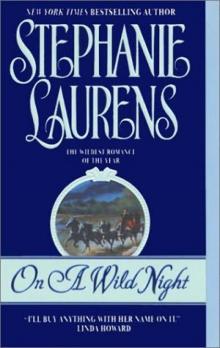 On a Wild Night c-8
On a Wild Night c-8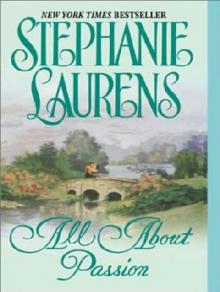 All About Passion c-7
All About Passion c-7